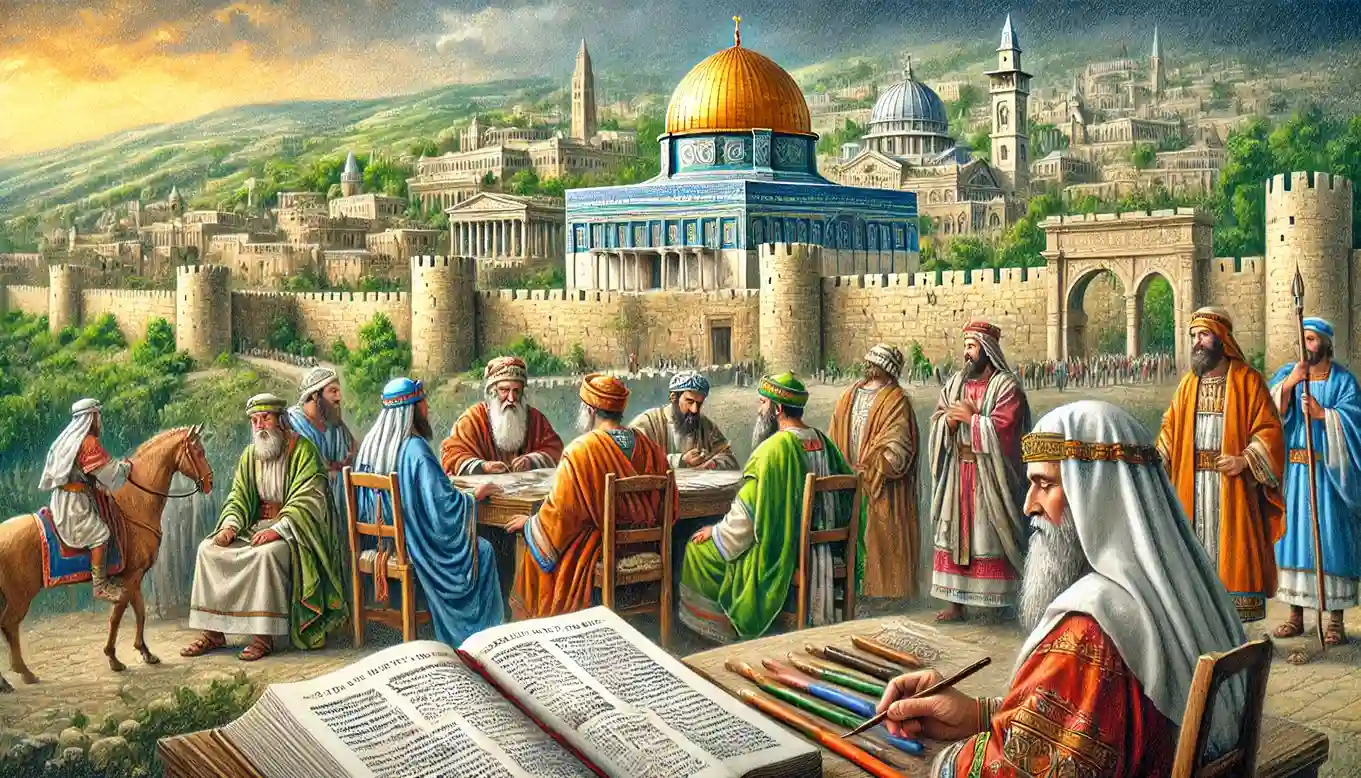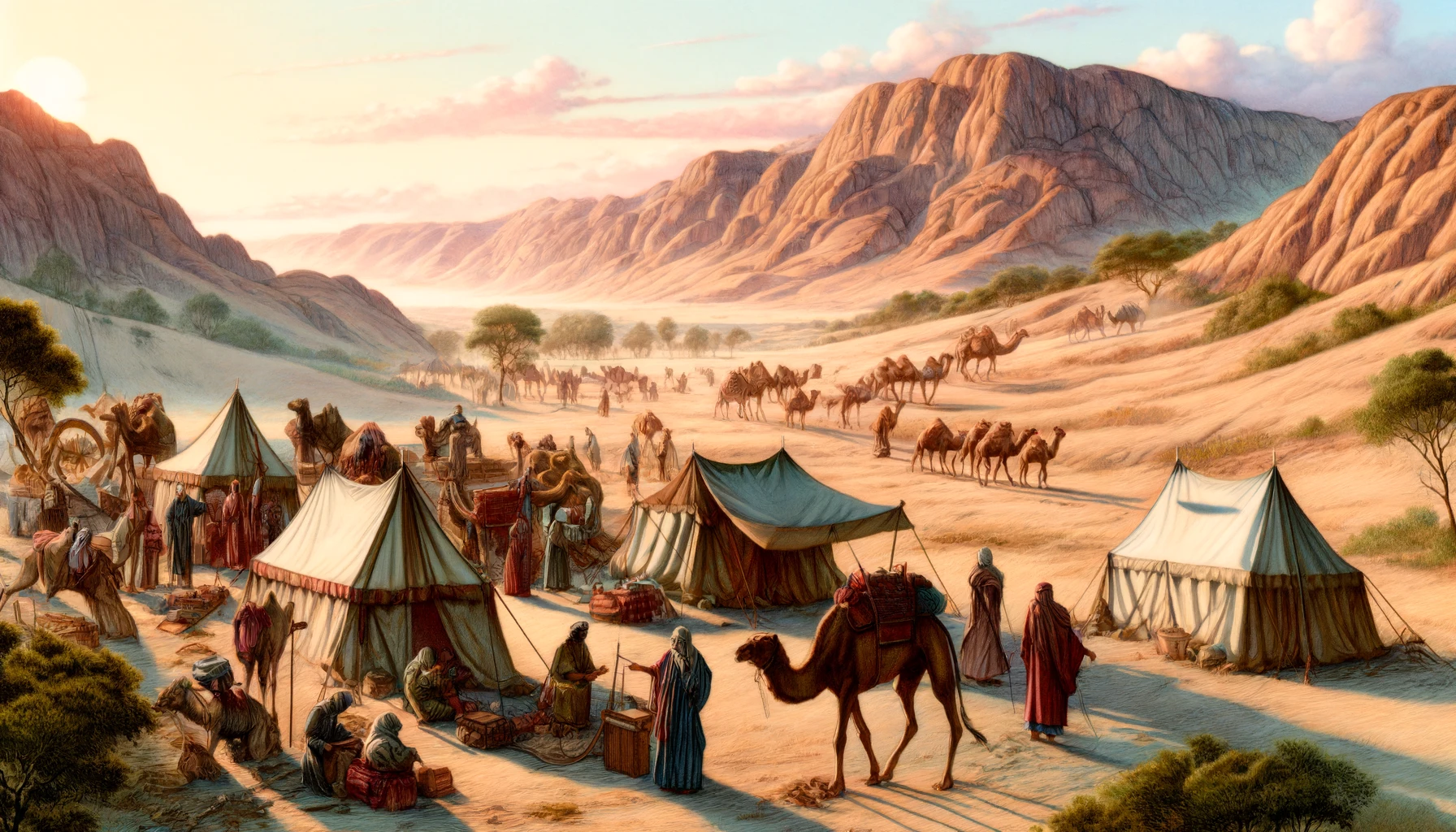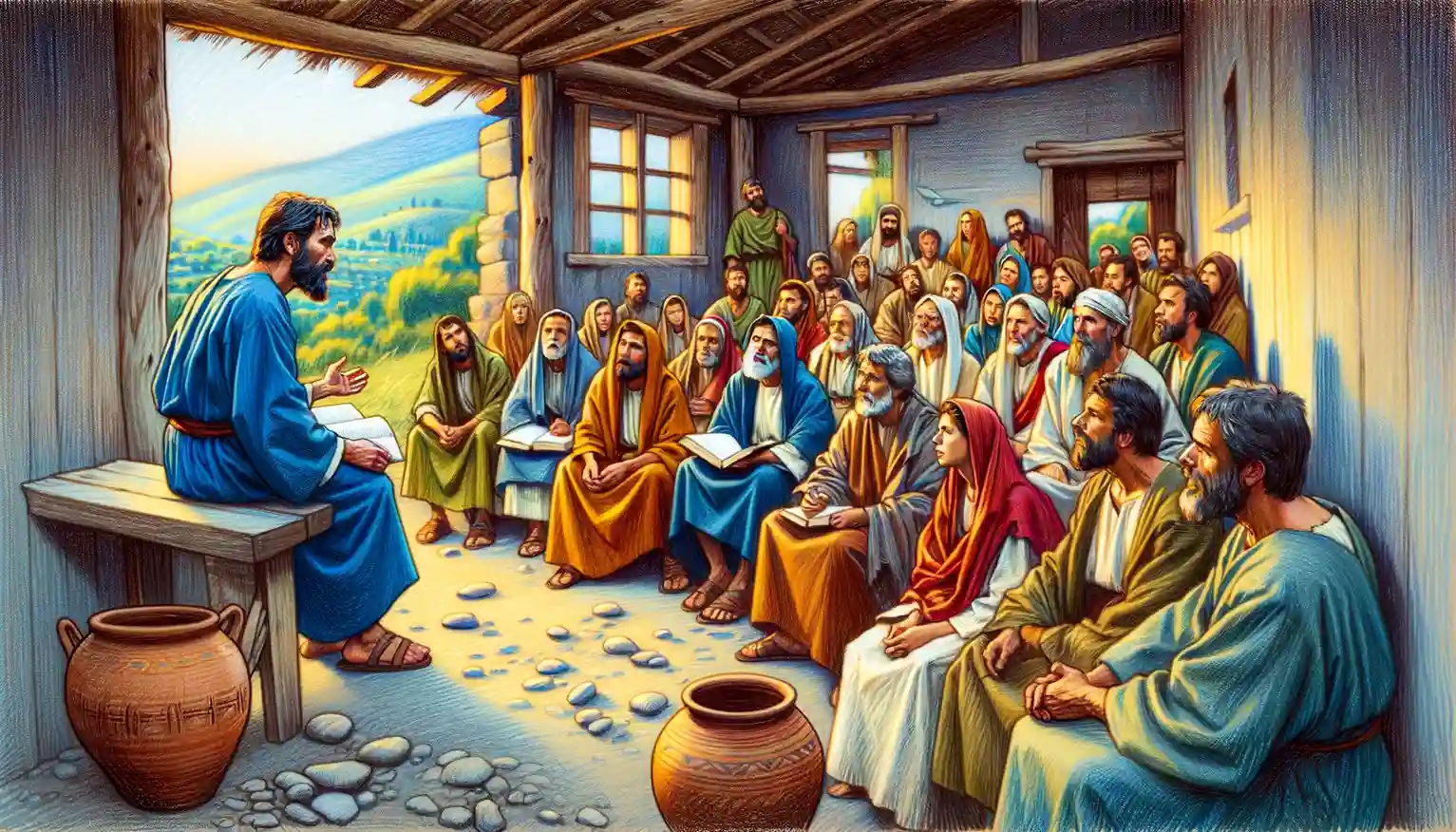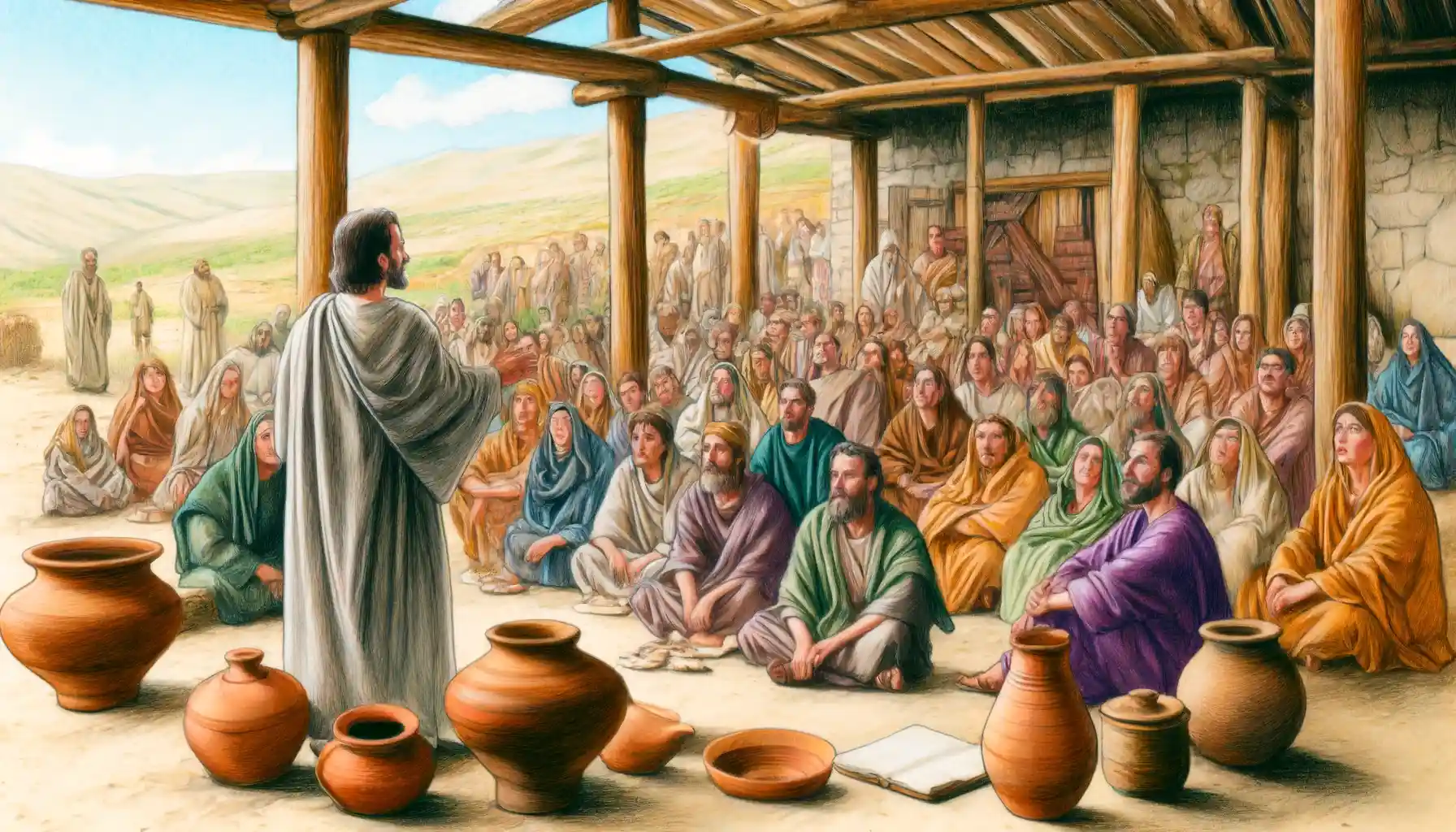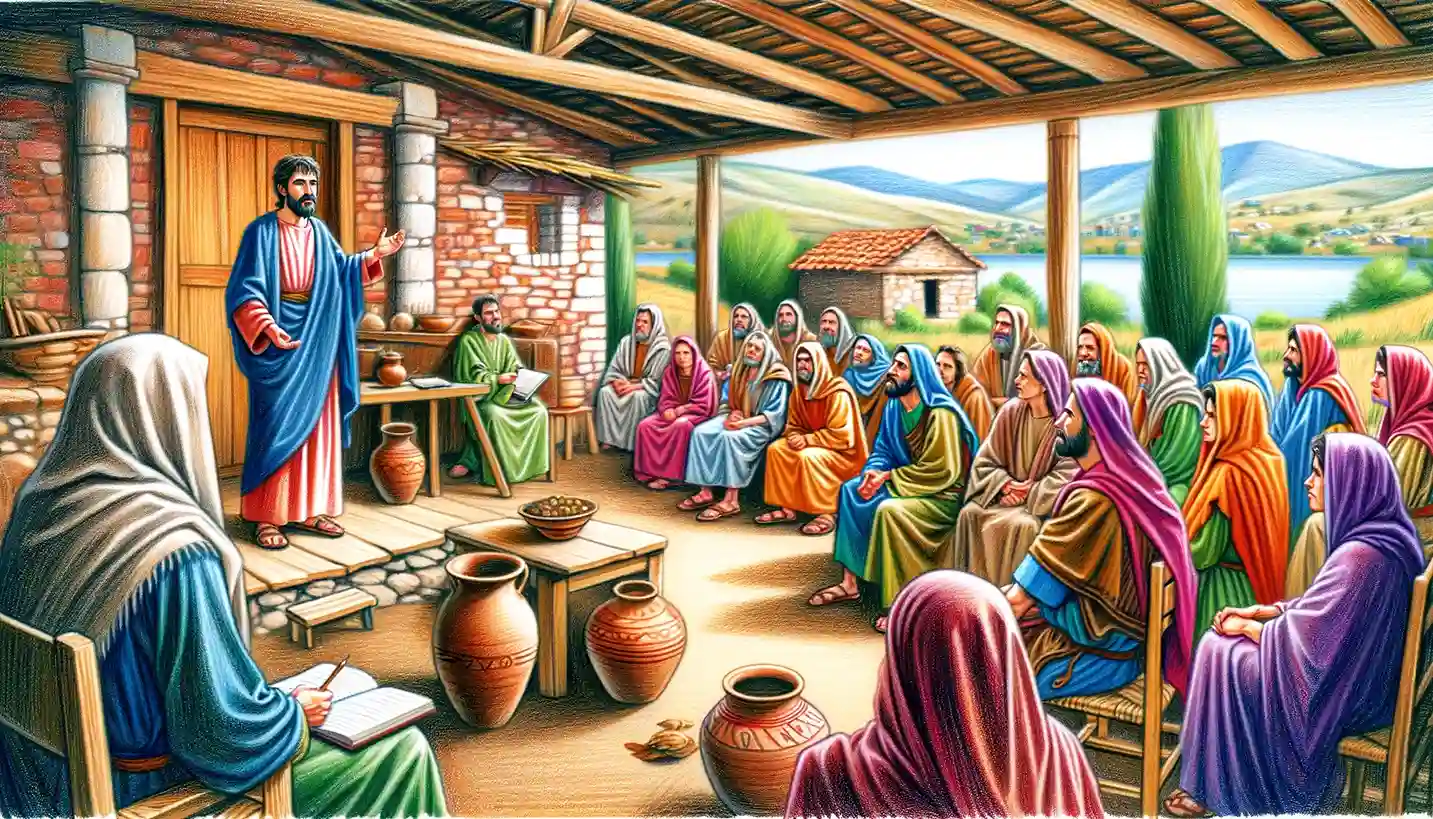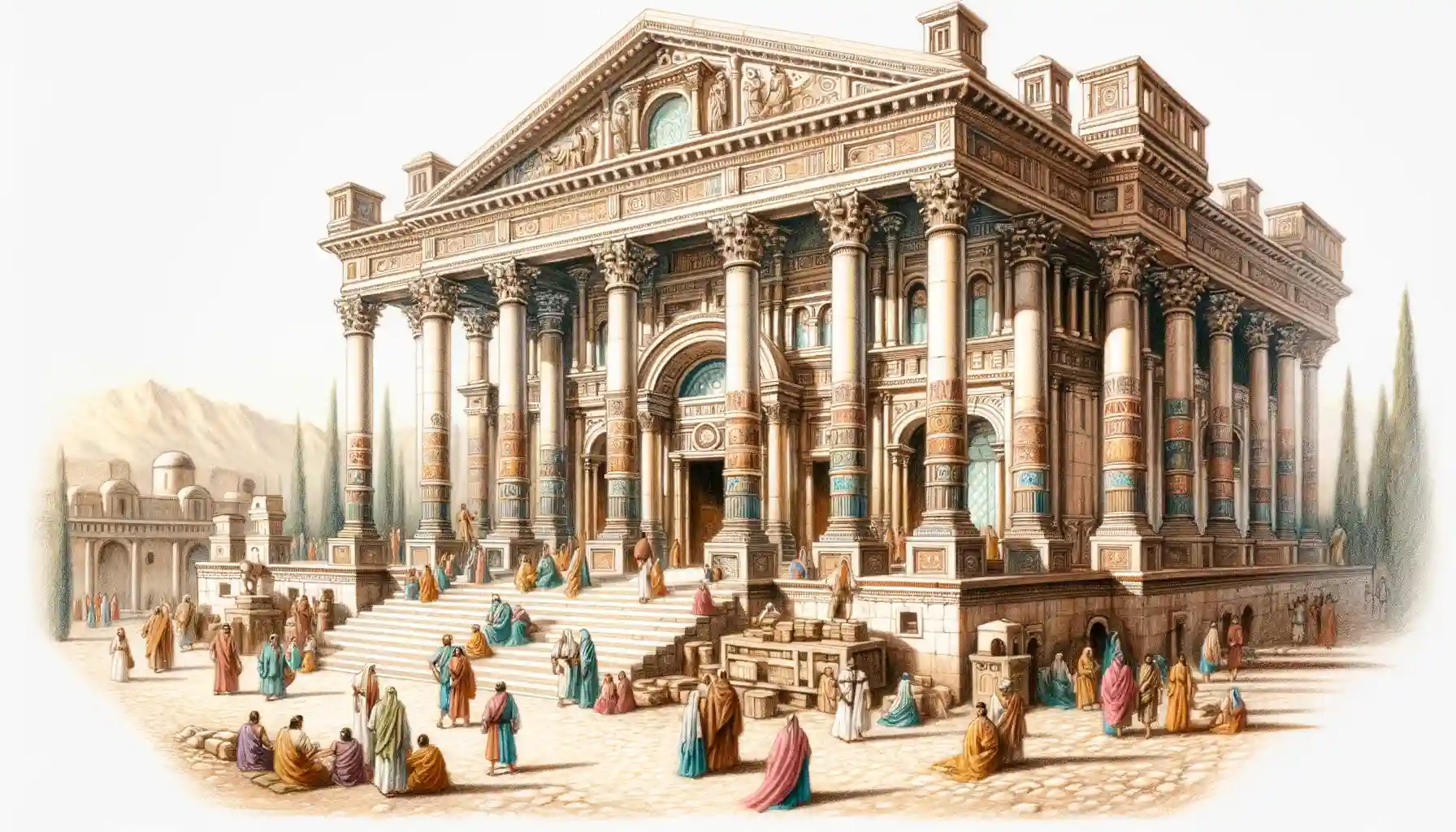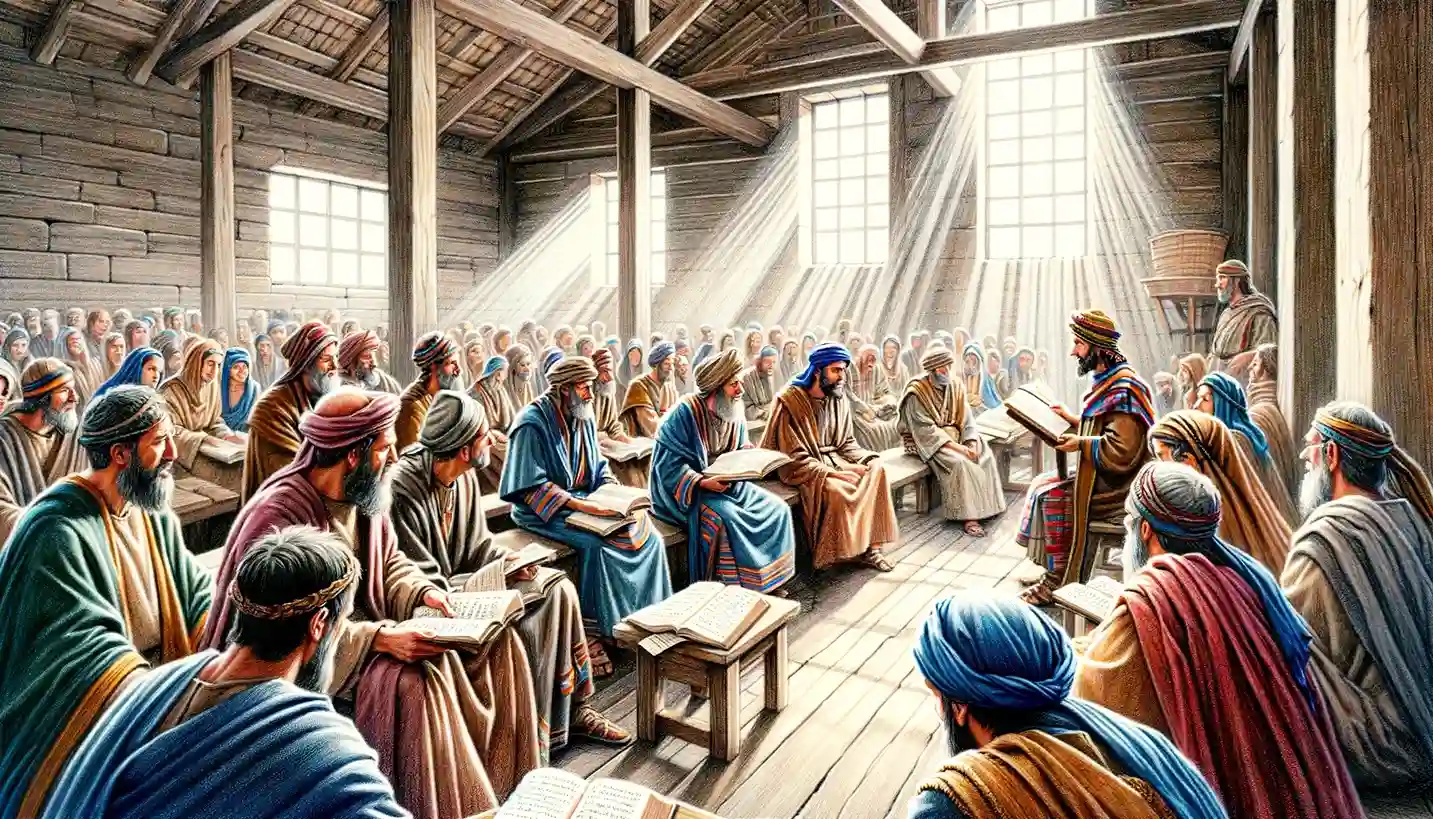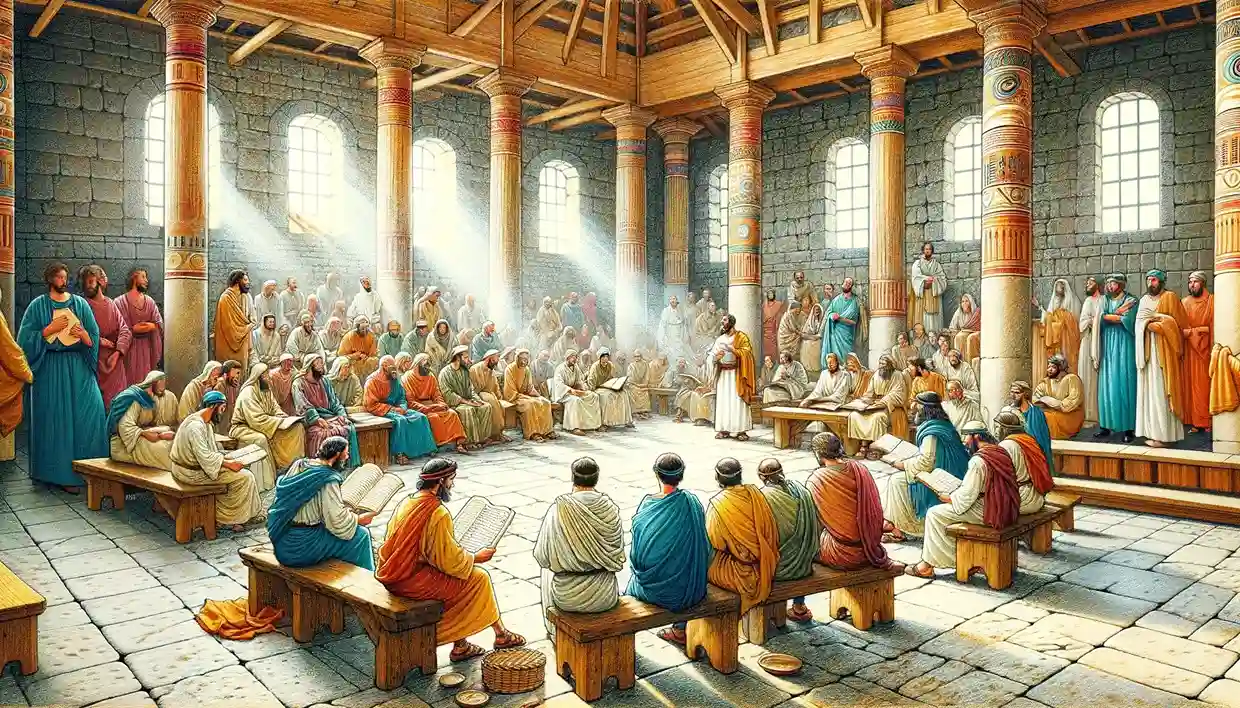Issachar, the fifth son of Jacob and Leah, is the progenitor of the tribe of Issachar, which was known for its agricultural richness and strategic importance in the Jezreel Valley, and is symbolized by a donkey, indicating strength and hard work.
The Southern Kingdom of Judah, formed after the division of the united monarchy, was centered in Jerusalem and ruled by the descendants of David, experiencing periods of reform and decline before its conquest by Babylon in 586 BC.
The Midianites, descendants of Abraham’s son Midian, were a nomadic people known for their interactions with key biblical figures and their conflicts with the Israelites, most notably during the time of the Judges.
Edom, named after Esau, is a significant biblical region south of the Dead Sea, known for its conflicts with Israel, strategic trade location, and prophetic judgments.
The Thessalonians, addressed in the New Testament through First and Second Thessalonians, were an early Christian community in Macedonia’s city of Thessalonica, facing persecution and doctrinal challenges while exhibiting remarkable faith and resilience under the apostolic guidance of Paul.
The Colossians Church, primarily known through Paul’s Epistle to the Colossians, was an early Christian community in Phrygia, notable for its struggles with heretical teachings and its profound insights into the supremacy and sufficiency of Christ.
The Philippians Church, established by the Apostle Paul around AD 49-50 during his second missionary journey, was the first Christian congregation on European soil, located in the Roman colony of Philippi in Macedonia. This church is well-known for its themes of joy, unity, and generosity as outlined in the Epistle to the Philippians, one of Paul’s most personal letters, written while he was in prison. The Philippians Church, notable for its early converts like Lydia and a jailer, became a model of early Christian devotion and community through its embodiment of Christian virtues and its robust support of Paul’s missionary work.
The Epistle to the Ephesians, written by the Apostle Paul, provides profound insights into the spiritual blessings and unity of the early Christian church, emphasizing the importance of ethical living and the role of the church in God’s redemptive plan.
The Epistle to the Galatians, written by the Apostle Paul to address false teachings and reaffirm the true Gospel, provides profound insights into justification by faith, Christian freedom, and the role of the Mosaic Law, making it a foundational text for understanding early Christian theology and practice.
The letters to the Corinthians provide profound insights into the early Corinthian church, addressing its challenges, moral issues, and theological questions, while offering timeless guidance for Christian living and church unity.


